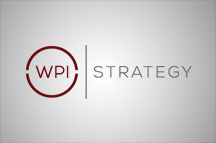Whilst the Government may have finally got Brexit over the line at the end of 2020, there is a sense that the real constitutional crisis has just begun. For the first time since 2014, Scottish Independence has risen up the political agenda, in both Holyrood and Westminster.
Since June, twenty consecutive polls have shown increased support for Scottish independence. In fact, the polls currently indicate that independence has the majority vote, reaching as high as 58 per cent. This is partly due to the political turmoil of the pandemic and Brexit creating the perfect political storm for Scotland to directly compare itself to the UK Government, bringing to life how Scotland could rule as an independent nation. Focus groups and polling also demonstrate this claim, with the majority suggesting that the Government’s handling of Brexit has increased their support for independence.
The SNP have their eyes set on the Holyrood elections in May as the next major milestone to achieving independence, planning to position their projected victory as providing the mandate to hold a second referendum. The polls have the party on track to take on their fourth consecutive term as Government and to win their second majority under an electoral system which should not deliver majority Governments. We can therefore expect to see the SNP seeking to hold a referendum in the next parliamentary term, with Nicola Sturgeon hoping to see one being held in the first half of the term.
But despite it seeming like the stars are aligning for independence and the SNP, the cracks are starting to show in the once united party and there are two main schisms to be aware of.
Firstly, there is the divide between those who want to push for independence at all costs – known within the party as “plan B” – and those who, like Sturgeon, would prefer to take a more cautious approach, prioritising the domestic agenda alongside independence. So far, however, peace between the two sides has largely prevailed with the SNP publishing its Roadmap to Independence and establishing a new Independence Commission.
The second issue is by far more pressing externally. While Alex Salmond’s sexual misconduct trial did little to damage the SNP or to derail independence, the ongoing parliamentary inquiry on Sturgeon’s handling of the allegations poses a moderate threat. The former First Minister has accused Sturgeon of misleading parliament and breaching the ministerial code over when she knew about the allegations which, if proven to be true, would be enough to force any leader to resign. Yet the impact to Sturgeon has been largely mitigated with the sexual harassment and inappropriate conduct inquiry no longer publishing key evidence.
The next couple of weeks will be vital here, with both Sturgeon and Salmond set to give verbal evidence to the inquiry. Despite the impact to Sturgeon being moderate, her former mentor is trying to bring the house down and the extent of the damage of this is yet to be determined. We could potentially see several key officials to Sturgeon having to stand down, including her husband, SNP chief executive Peter Murrell.
Regardless, this is unlikely to have significant cut through unless Sturgeon is forced to resign, and this is looking increasingly unlikely. What we will see is the SNP, alongside the other political parties ramping up preparations ahead of 6 May. And we will certainly see the SNP exposing the limitations of Brexit to Scotland in the run-up to the election. Which is why we can see Gordon Brown leading Labour’s Union Commission to try cement alternatives to independence that is not the status quo.
The 20 consecutive polls supporting independence, coupled with an SNP majority at the Scottish Elections, puts Westminster in a deeply precarious position. It must either grant a referendum or refuse to, neither of which will be easy positions to take. Therefore, Westminster’s only realistic policy option may be to offer a Devo Max Deal, which is likely to include further spending powers. This would prevent the Prime Minister being seen as preventing the Scottish people from their democratic demand and allow him to be viewed as saving the Union in Westminster. However how this will fly with Holyrood is another question.
by Sarah Thomson, Senior Consultant












